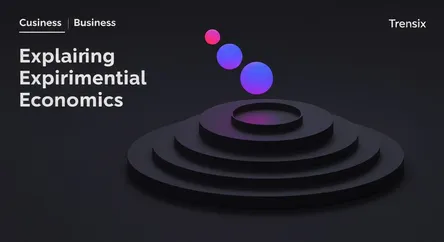Business
Explaining Experimental Economics

Discover experimental economics, the field that uses controlled tests to understand how people make financial decisions in the real world.
What is it?
Experimental economics is a branch of economics that uses controlled experiments to test and verify economic theories. Instead of relying solely on historical data, economists create laboratory or field-based scenarios to observe how real people make decisions under specific conditions. Participants, often students or individuals from a target demographic, are given tasks involving real monetary incentives to simulate market situations, bargaining, or public good contributions. This method allows researchers to isolate variables and directly test cause-and-effect relationships in economic behavior, bridging the gap between theoretical models and real-world actions.
Why is it trending?
The field is gaining prominence because it provides hard, empirical evidence for theories that were once purely abstract. As data-driven decision-making becomes standard in business and policy, experimental economics offers a powerful tool to test ideas before large-scale implementation. The rise of behavioral economics, which challenges traditional assumptions of perfect rationality, heavily relies on experimental findings. Nobel prizes awarded to pioneers like Vernon Smith and Daniel Kahneman have also boosted its credibility and visibility, encouraging its use in academia and beyond.
How does it affect people?
Experimental economics directly influences policy design and business strategy. Governments use its insights to design more effective auctions for public assets, like 5G spectrum, or to craft policies that "nudge" people towards better choices, such as saving for retirement or conserving energy. For businesses, it helps in determining optimal pricing strategies, designing better online marketplaces, and understanding consumer behavior. By revealing how incentives and information shape our choices, these experiments lead to more effective and human-centric economic systems that impact everyday life.